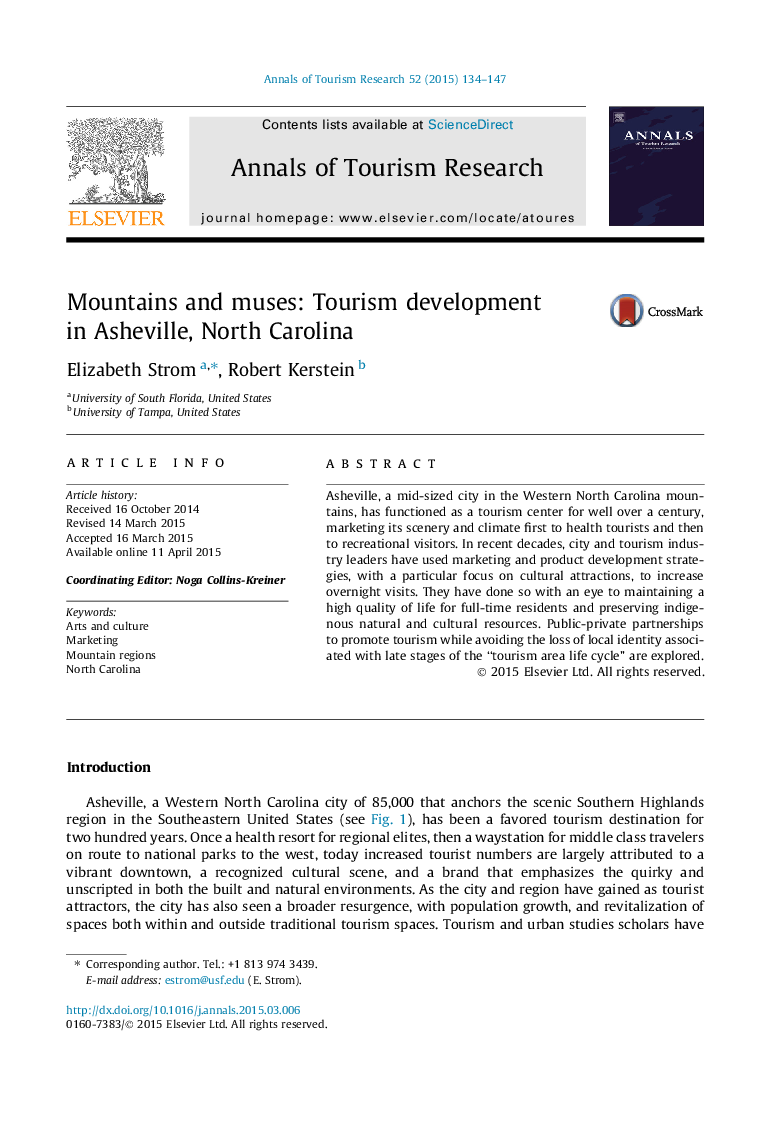| Article ID | Journal | Published Year | Pages | File Type |
|---|---|---|---|---|
| 1007016 | Annals of Tourism Research | 2015 | 14 Pages |
•Synthesize Tourism Area Life Cycle and urban tourism research approaches.•Focus on spaces and practices that can serve residents and visitors.•Investigate culture and branding as means of forging area’s identity.•Assert importance of governance structures and practices to resolve tourism-related conflicts.
Asheville, a mid-sized city in the Western North Carolina mountains, has functioned as a tourism center for well over a century, marketing its scenery and climate first to health tourists and then to recreational visitors. In recent decades, city and tourism industry leaders have used marketing and product development strategies, with a particular focus on cultural attractions, to increase overnight visits. They have done so with an eye to maintaining a high quality of life for full-time residents and preserving indigenous natural and cultural resources. Public-private partnerships to promote tourism while avoiding the loss of local identity associated with late stages of the “tourism area life cycle” are explored.
